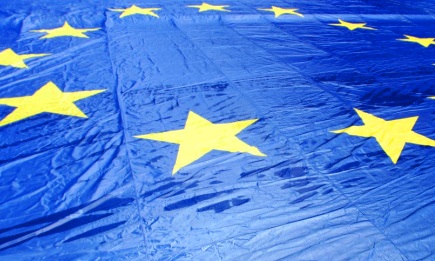Tackling Europe’s crises through education

This article was previously published on the website of Neth-ER
“The shadow of war and conflict has returned to the European continent and education is key in dealing with this new era. Through education, European values can be spread and these values can help in overcoming the dangers that Europe is facing. The Dutch National Students Union (LSVb) and Dutch National Students Association (ISO) advocate that the student perspective is missing in the current discussion about incorporating values in higher education. After all, students are the future generation that will revise Europe.
Let’s not leave the involvement of students in fundamental crises of Europe to vision on paper, but act accordingly and translate it into action. Our suggestion is to start today by tackling the refugee crisis. Students can play an important role in helping Europe to overcome this crisis and students can be the solution for successful integration of refugees in Europe.
First, refugees can teach today’s students about their vision on human rights and cultural background. This enriches and enlightens European students and helps them to understand cultures abroad and international developments.
Second, European students can and help refugees to integrate in the culture of their country (and Europe). This can be achieved by a buddy system, organising sustainable relations between refugees and students, or just the organisation of simple cultural nights or lectures. If the relation between refugees and students is well formed, the future of both of them is richer.
This shows the important role that students can play in tackling Europe’s crises. And we need solutions for these crises, because after decades of relative peace, prosperity and continuous economic growth, uncertainty hangs over the European project.
While the economic and banking crisis mainly put a strain on the solidarity between the different countries, this threatens the fundamental values of the European Union. Nationalism, which brought death and destruction to the continent during the 20th Century, rears its ugly head in parties from left to right across the Union. In combination with radicalism, xenophobia, and terrorism it has poisoned and polarized the public debate.
Now, more than ever, we need the European values to help combat these sentiments and return us to an environment of optimism and cooperation to tackle the challenges of the 21st century together. These values are; respect for human dignity, liberty, democracy, equality, the rule of law, and respect for human rights, including the rights of persons belonging to minorities.
They are listed in article two of the Lisbon Treaty. This article holds that these values are common to the Member States in a society in which pluralism, non-discrimination, tolerance, justice, solidarity and equality between women and men prevail.
Education is key in continuing the foundation of these values in all European societies. Last year, the education ministers of Europe reiterated this message in the Paris declaration in response to Charlie Hebdo terrorists’ attacks. While we heartedly underline the need and the value of this declaration, we think there is the need to bring the student perspective into this discussion. What benefits, needs and roles do students have in this debate?
The benefits of European value education for students
The national constitution of the Netherlands does not provide the same level of protection of human rights as the European treaties do. They provide less protection, so the citizens of the Netherlands have indeed an extra reason to cherish European values and rights. Students need to be taught the basic principles of European law to understand and know these rights to be able to enjoy them.
The needs of value education for European students
Students should understand how Europe works, because the future of students is a European one. The freedom of movement of persons, goods and services implies a labour market that is not hindered by borders. To succeed in this European area, it is necessary for students to understand other cultures and to share basic principles with their fellow Europeans.
The roles of students in value education
The eager pupils in the lecture halls today are presumable the future leaders of Europe. They are the instigators of the discussion within institutions. And today’s youth is the conscience of tomorrow’s society. This makes the role of this generation difficult to overestimate. Europe should include their fresh views in the fundamental discussions to prepare them for their future and to help Europe overcome its crises.
We hereby hope to have made clear that students, Europe’s future generation, must be involved in helping tackling the crises that Europe is facing. We warmly invite Europe’s stakeholder organisations and institutions; the European Commission, Parliament and Council to discuss with us how to put this into practice. Because we believe that this can enlighten and strengthen the future of Europe.”
Hilde Feddema (board member ISO) and Josephine Verstappen (board member LSVb)
Meest Gelezen
Vrouwen houden universiteit draaiende, maar krijgen daarvoor geen waardering
Wederom intimidatie van journalisten door universiteit, nu in Delft
‘Burgerschapsonderwijs moet ook verplicht worden in hbo en wo’
Raad van State: laat taaltoets nog niet gelden voor hbo-opleidingen
Hbo-docent wil wel rolmodel zijn, maar niet eigen moreel kompas opdringen

